SESP Faculty Recognize Honors Students
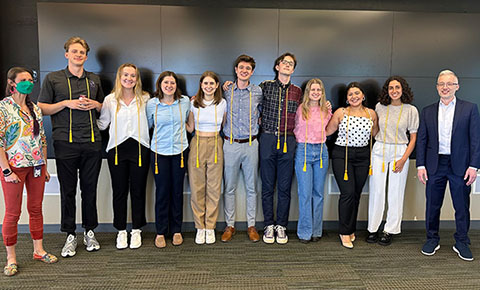 Northwestern University School of Education and Social Policy honors students explored everything from ethnic divisions in Israel to high school discipline practices as part of their senior honors thesis projects.
Northwestern University School of Education and Social Policy honors students explored everything from ethnic divisions in Israel to high school discipline practices as part of their senior honors thesis projects.
The 2022-23 honors students included Maayan Abouzaglo, Ryley Boddeker-O’Connor, Kathryn Bowman, Joselyn A. Chavez, Julia Ellis, Owen P. Elton, Jacob Geil, Jackson Hugill, and Joanna Tasch.
“Every year I’m astounded by the ideas they generate and the way they carry them out,” professor David Rapp, director of undergraduate education, told the faculty during an end of year recognition ceremony and poster session. “Each project could be presented in a journal."
To be eligible, students must have a 3.5 grade point average at the end of winter quarter during their junior year. In the spring, they can take a thesis proposal design course, Advanced Research Methods, taught by Lilah Shapiro. In this class, they review previous studies, identify research questions, and design an independent research project tailored to their interests. They also take an honors seminar taught by Rapp, the Walter Dill Scott Professor of Learning Sciences.
By the end of the year, students are prepared for multiple careers beyond academic research after they leave Northwestern, including industry and non-profit positions, Rapp said.
Other faculty and staff in the honors program included teaching assistant and doctoral student Meg Butler, and Susan Olson, assistant dean for Student Affairs. Shapiro, who received the Charles Deering McCormick Distinguished Professor of Instruction award this year, advised three of the nine students.
Read a full list of student projects:
Maayan Abouzaglo, Social Policy
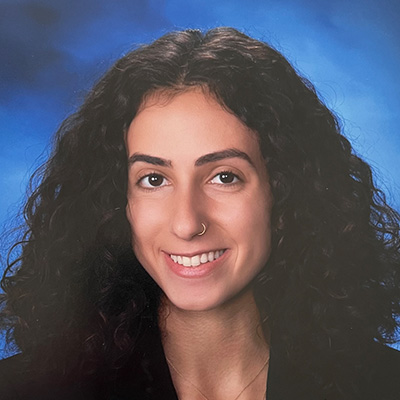 Thesis: “Outsiders in the Promised Land: Young Adult Mizrahi Identity in Israel”
Thesis: “Outsiders in the Promised Land: Young Adult Mizrahi Identity in Israel”
Israeli Jewish society is marked by ethnic divisions between Jews of European descent, (Ashkenazim) and of Middle East and North African descent (Mizrahim). Abouzaglo interviewed 15 third- and fourth-generation, college-educated Mizrahim in Israel between the ages of 24 and 30 to see whether they perceived facing discrimination or structural barriers. Her research challenged the notion that all Jews in Israel are equal and that ethnic-based cleavages no longer exist. She hopes the work could help inform policy efforts to work towards equality in Israeli Jewish society.
Primary advisor: Lilah Shapiro
Complementary advisor: Maayan Hilel, Center for Jewish Studies; Eva Lam
Ryley Boddeker-O’Connor, Social Policy
 Thesis: “High Achievers and Discipline Receivers: Student Perceptions of Discipline in High School”
Thesis: “High Achievers and Discipline Receivers: Student Perceptions of Discipline in High School”
Boddeker-O’Connor, of Columbus, Ohio, examined how students’ view their high school’s discipline practices among students with different racial and gender identities impact their academic performance, social and emotional well-being, and school environment. She found students with high achieving or privileged identities showed a more limited view of the inequities in their school, but all students expressed feeling frustration and powerlessness when demands for reform were not met. “My findings suggest that students would benefit from schools that implement structured reflections on identity and privilege, hire more of teachers of color, and rebuild discipline structures that seek to rectify harm rather than punish,” she wrote.
Primary advisor: Lilah Shapiro
Complementary advisor: Tim Dohrer
Kathryn Bowman, Social Policy
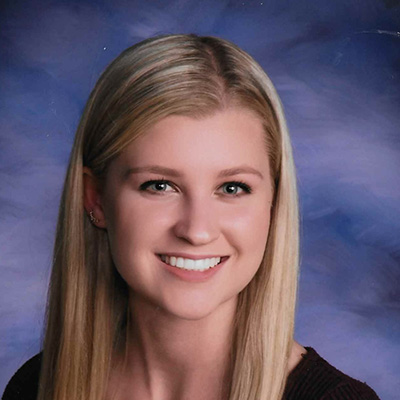 Thesis: “Wheying the Claims: Investigating Protein Claims and Consumers’ Perceptions”
Thesis: “Wheying the Claims: Investigating Protein Claims and Consumers’ Perceptions”
Bowman, of Walnut Creek, Calif., investigated health claims behind high-protein products. She found that targeted advertising, an emphasis on quantity and information manipulation were critical marketing mechanisms driving the popularity of these diets. “The claims appear to significantly influence consumers' perception of protein, health, and consumption habits, leading many consumers to overestimate their protein needs,” she wrote.
Primary advisor: Reed Stevens
Complementary advisor: Miri Eliyahu
Joselyn A. Chavez, Human Development in Context
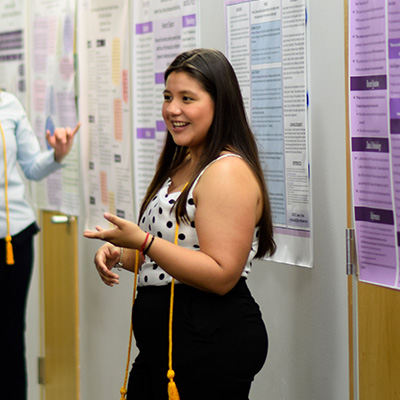 Thesis: “The Stories They Tell: Exploring Latine College Student Narratives at an Elite, Predominantly White Institution"
Thesis: “The Stories They Tell: Exploring Latine College Student Narratives at an Elite, Predominantly White Institution"
Chavez, of Chicago, is part of the Accelerated Master's in Education program at Northwestern; this summer she'll be preparing for her contents tests in elementary education, middle-grade math and secondary math before student teaching. For her thesis, she interviewed eight Latine-identifying college students about pivotal moments in their lives before and after college. She found that they deeply valued belonging, both at home and school. They also wrestled with their dual identity when they returned home after college, and dual responsibilities, such as serving as the family caretaker while away at school and also at home.
Primary advisor: Ruben Echevarria
Complementary advisor: Regina Logan
Julia Ellis, learning sciences
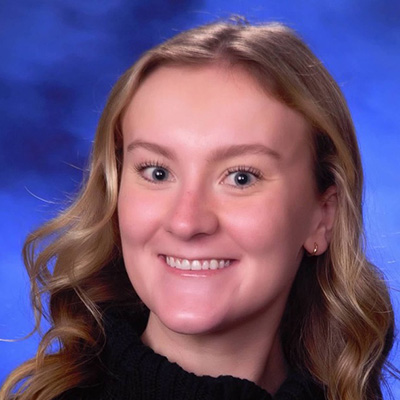 Thesis: “Undergraduates and Autoimmune Disease: Integrating Qualitative and Quantitative Methods”
Thesis: “Undergraduates and Autoimmune Disease: Integrating Qualitative and Quantitative Methods”
Ellis, of Lincolnshire, Ill., interviewed 18 undergraduates to assess how autoimmune diseases impact the college experience. Most current research looks at older people, even though an earlier diagnosis is associated with more emotional distress. Her findings confirmed that autoimmune disease significantly impacts the social and academic experience of undergrads, suggesting that people with more intrusive or uncontrolled conditions may be at an increased risk for social isolation and a preoccupation with their illness.
Primary advisor: Jolie Matthews
Complementary advisor: Anthony Vesco
Owen P. Elton, Social Policy
 Thesis: “The Alienable Rights to Life, Liberty and the Pursuit of Happiness: Comparative Political Norms in Postwar Healthcare Reforms in the US and UK”
Thesis: “The Alienable Rights to Life, Liberty and the Pursuit of Happiness: Comparative Political Norms in Postwar Healthcare Reforms in the US and UK”
Elton explored how healthcare developed in both the US and UK during the early postwar period when the British Parliament established the National Health Service and the U.S. Congress debated the National Health Program bill advanced by President Harry S. Truman. He looked at the political environment and perceptions of the role of the state in both countries by coding and analyzing transcripts of the relevant legislative hearings. Elton found that "the values of freedom, democracy, and economic growth guided politics in both countries, but the meanings attached to these broader notions differed." Understanding how the healthcare systems developed sheds light on “the conditions conducive to successful substantial reforms, even in systems traditionally resistant to such overhaul,” he wrote. Elton, from Concord, Mass., plans to continue his work in social policy next year in New York City.
Primary advisor: Quinn Mulroy
Complementary advisor: Chloe Thurston
Jacob Geil, Social Policy
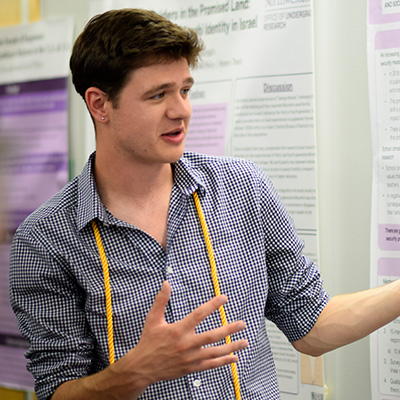 Thesis: “The Impact of School Security on Student Well-being”
Thesis: “The Impact of School Security on Student Well-being”
Geil surveyed nearly 100 first-year Northwestern students about school security. He followed up with ten of the survey participants who graduated from a high school with a security presence. His research looked at direct impacts of school security on aspects of a student’s well-being; how different types of security elicit different perceptions in students; how student identity affects the relationship between a student and their school’s security presence; and how a lack of support affects how students view their environment.
Primary advisor: Tim Dohrer
Complementary advisor: Regina Logan
Jackson Hugill, social policy
 Thesis: “Indifferent or Ineligible: Understanding Political Apathy Measurement”
Thesis: “Indifferent or Ineligible: Understanding Political Apathy Measurement”
Hugill, who wil be working as a government consultant in the Washington, D.C. area after graduation, analyzed academic literature and a robust sample of news articles published during the 2000, 2008, and 2016 U.S. presidential election cycles to get a better understanding of how scholars and media outlets assess political apathy. He also examined how these assessments vary based on time period, political leaning, and referenced demographics. Some of his findings suggest that that media outlets present different standards for political participation based on identity.
Primary advisor: Tabitha Bonilla
Complementary advisor: Mary McGrath
Joanna Tasch
Thesis: “‘Never Again is Now’: Interactions With the Holocaust as an Interpretative Framework”
Tasch analyzed online newspaper articles, website pages, speeches, and public statements to examine how the American Jewish community uses or rejects comparisons between the Holocaust and contemporary political issues. Her project focused on five case studies where the Holocaust framework was invoked or rejected: Arizona’s proposed use of cyanide gas for death penalty executions, discussions surrounding ICE detention centers, the Israeli-Palestinian conflict, the pro-life movement, and protests surrounding COVID- 19 regulations. She found supporters of Holocaust comparisons believe it brings visibility to the injustice, inspires activism, helps embody principles of “never again,” and helps us learn from the lessons of Holocaust history. Opponents find comparisons "offensive, antisemitic, ignorant, distracting from fixing the injustice, and a form of Holocaust distortion/denial."
Primary advisor: Lilah Shapiro
Complementary advisor: Stefan Ionescu